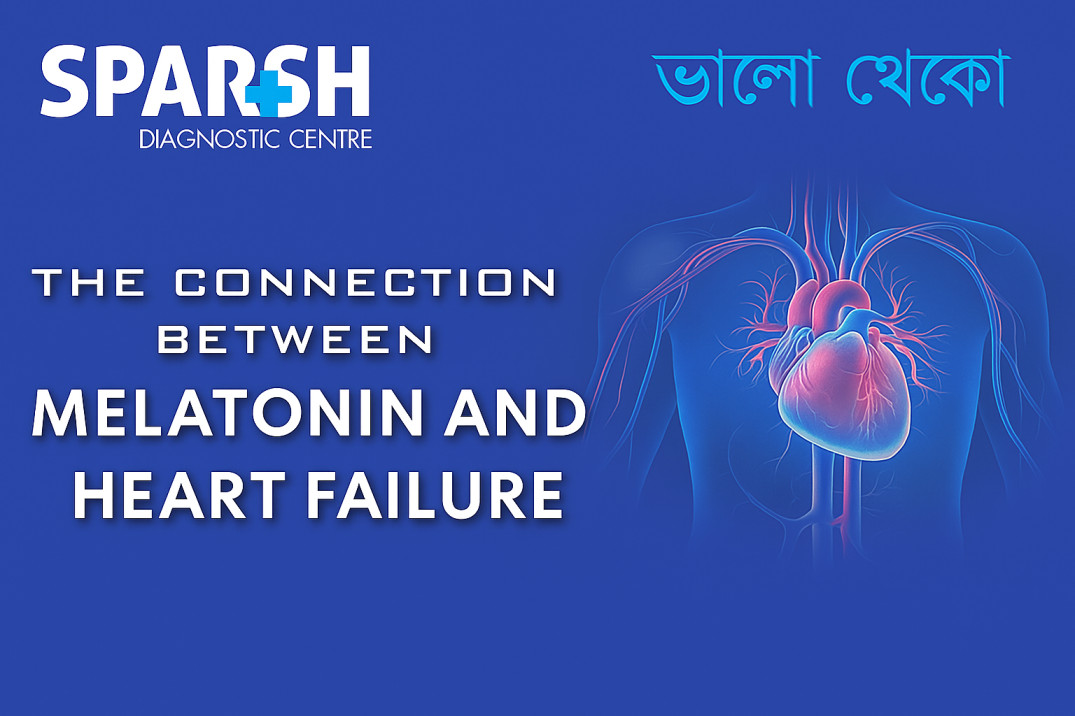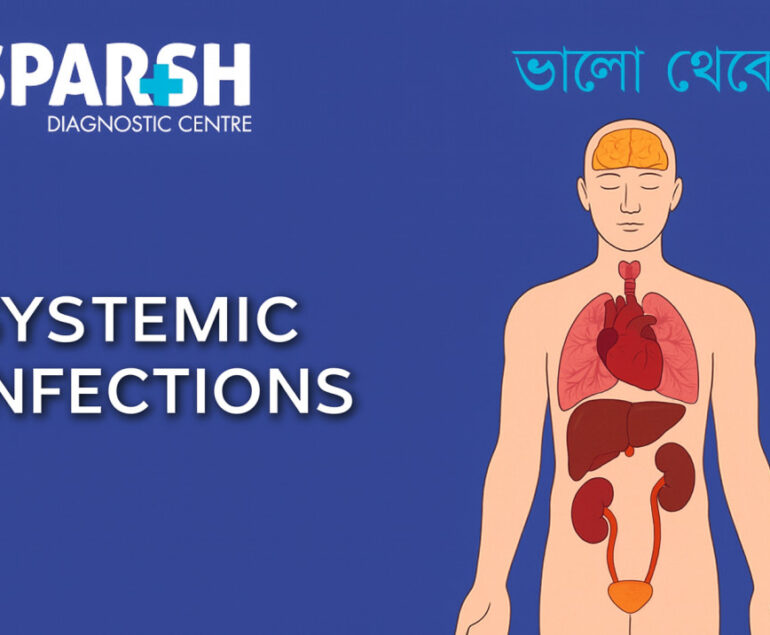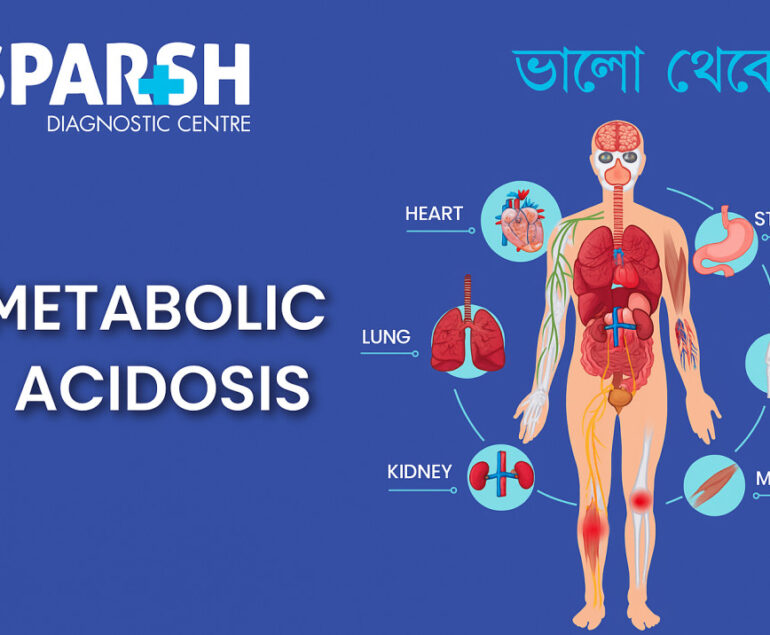Heart failure is a chronic condition where the heart becomes too weak or stiff to pump blood efficiently, leading to fatigue, shortness of breath, and fluid buildup. According to the World Health Organization (WHO), heart failure affects more than 64 million people worldwide, and its prevalence continues to rise with aging populations and lifestyle changes.
While traditional treatments include medications, lifestyle modifications, and in some cases, surgical interventions, recent research has shed light on an unexpected player in cardiovascular health — melatonin.
Known primarily as the “sleep hormone,” melatonin helps regulate the sleep-wake cycle. However, emerging studies reveal that melatonin’s antioxidant, anti-inflammatory, and mitochondrial-protective effects may also offer cardioprotective benefits, especially in heart failure.
This article explores the connection between melatonin and heart failure, its mechanisms, scientific evidence, and whether melatonin supplements could support heart health.
What Is Melatonin?
Melatonin is a naturally occurring hormone produced by the pineal gland in the brain, mainly during the night in response to darkness. It signals the body to prepare for sleep and plays a key role in maintaining circadian rhythm — the body’s internal biological clock.
But melatonin does more than regulate sleep. It acts as:
A powerful antioxidant – neutralizes harmful free radicals.
An anti-inflammatory agent – reduces tissue inflammation.
A mitochondrial protector – preserves energy production in cells.
An immune regulator – balances immune responses to prevent chronic damage.
These properties have attracted researchers’ attention toward melatonin’s broader role in conditions like cardiovascular disease, diabetes, neurodegeneration, and even cancer.
Understanding Heart Failure
Heart failure (HF) doesn’t mean the heart has stopped working — it means the heart can’t pump blood efficiently to meet the body’s needs. This inefficiency causes fluid to accumulate in the lungs, legs, and abdomen, leading to shortness of breath, fatigue, and swelling.
Types of Heart Failure
Left-sided heart failure – when the left ventricle weakens and struggles to pump blood to the body.
Right-sided heart failure – when the right ventricle fails to pump blood into the lungs.
Systolic vs. Diastolic heart failure – the former occurs when the heart muscles can’t contract properly, while the latter occurs when the heart becomes too stiff to fill properly.
Common Causes
Obesity and sleep apnea
As oxidative stress, inflammation, and mitochondrial dysfunction are key players in heart failure progression, melatonin’s biological effects may help counteract these mechanisms.
The Connection Between Melatonin and Heart Failure
1. Antioxidant and Anti-inflammatory Effects
In heart failure, excess reactive oxygen species (ROS) damage heart cells, impair mitochondria, and weaken cardiac muscles. Melatonin, being a potent free radical scavenger, reduces oxidative stress and protects myocardial tissue.
Moreover, melatonin lowers levels of inflammatory cytokines like TNF-α and IL-6, which are elevated in heart failure. This helps in slowing disease progression and preserving cardiac function.
2. Mitochondrial Protection
Mitochondria, often called the “powerhouses” of cells, generate energy required for heart contractions. In heart failure, mitochondrial dysfunction leads to energy deficits. Melatonin supports mitochondrial biogenesis and function, improving the energy supply to heart muscle cells and reducing cellular death (apoptosis).
3. Regulation of Autonomic Nervous System
The autonomic nervous system controls heart rate and blood pressure. In heart failure, there’s often sympathetic overactivation (increased stress response) and parasympathetic suppression (reduced relaxation response). Melatonin helps rebalance this system, lowering nighttime blood pressure and stabilizing heart rhythm.
4. Sleep and Cardiovascular Health
Sleep disturbances are common in heart failure patients — often due to nocturnal dyspnea, anxiety, or sleep apnea. Poor sleep further exacerbates heart dysfunction. Melatonin helps restore sleep quality, which indirectly reduces cardiac stress and inflammation.
5. Protection Against Ischemia-Reperfusion Injury
When blood flow returns to the heart after ischemia (restricted blood flow), oxidative stress spikes — a phenomenon known as ischemia-reperfusion injury. Melatonin has been shown to limit myocardial damage by reducing oxidative bursts during this critical phase.
Scientific Evidence: What Studies Say
Several experimental and clinical studies support the beneficial effects of melatonin on the cardiovascular system:
Animal studies have demonstrated that melatonin supplementation improves left ventricular ejection fraction (LVEF) and reduces fibrosis and apoptosis in failing hearts.
A 2014 study published in Journal of Pineal Research found that melatonin treatment improved cardiac mitochondrial efficiency and reduced oxidative stress in heart failure rats.
Human studies, though limited, are promising. A 2020 review in Frontiers in Cardiovascular Medicine concluded that melatonin may improve cardiac function and reduce inflammatory markers in patients with heart failure and ischemic heart disease.
Another study observed that melatonin levels are significantly lower in patients with chronic heart failure compared to healthy individuals, suggesting a potential deficiency link.
These findings highlight melatonin’s therapeutic potential as an adjunct — not a replacement — to standard heart failure treatments.
Melatonin Levels and Heart Health
Interestingly, melatonin production naturally declines with age, which coincides with an increased risk of cardiovascular diseases. Low melatonin levels have been associated with:
Higher nighttime blood pressure
Poor sleep quality
Increased oxidative stress
Impaired endothelial (blood vessel) function
Thus, maintaining optimal melatonin levels may help support cardiovascular health and slow heart failure progression.
Melatonin Supplementation: Can It Help?
Potential Benefits
For heart failure patients, melatonin supplementation may offer:
Improved sleep and reduced insomnia
Lower nighttime blood pressure
Reduced oxidative and inflammatory damage
Enhanced mitochondrial function
Better exercise tolerance and cardiac performance
Recommended Dosage
Most studies on cardiovascular effects use 2–10 mg of melatonin taken before bedtime. However, dosage can vary based on individual health status and response.
⚠️ Important: Always consult a cardiologist or physician before starting melatonin supplements, especially if you’re already on heart medications (e.g., beta-blockers, ACE inhibitors, or diuretics).
Possible Side Effects
Melatonin is generally safe for short-term use, but side effects may include:
Long-term safety in patients with heart failure remains under investigation, and self-medication is not recommended.
Natural Ways to Boost Melatonin Production
If you prefer not to take supplements, several lifestyle changes can naturally enhance melatonin levels:
Maintain a regular sleep schedule — Go to bed and wake up at consistent times.
Limit blue light exposure — Avoid screens 1–2 hours before bedtime.
Sleep in complete darkness — Even small light sources can suppress melatonin.
Eat melatonin-rich foods — Include cherries, walnuts, bananas, oats, and milk.
Manage stress — Meditation, deep breathing, or yoga can help regulate cortisol and melatonin balance.
The Future of Melatonin in Heart Failure Treatment
While evidence suggests melatonin’s potential benefits in managing heart failure, more large-scale clinical trials are needed to confirm optimal dosage, safety, and long-term effects.
Researchers are exploring melatonin analogs and targeted delivery systems that can enhance cardiac protection without interfering with other physiological processes.
In the future, melatonin could emerge as a complementary therapy alongside conventional treatments, improving both cardiac outcomes and quality of life for heart failure patients.
Key Takeaways
Melatonin, the hormone that regulates sleep, also plays crucial roles in reducing oxidative stress, inflammation, and mitochondrial damage — all major factors in heart failure.
Low melatonin levels are common in heart failure patients.
Supplementation or lifestyle changes that boost melatonin may support heart health and better sleep.
However, melatonin should never replace prescribed heart medications — always consult your doctor first.
Frequently Asked Questions (FAQs)
1. Can melatonin prevent heart failure?
Melatonin cannot prevent heart failure on its own. However, by improving sleep quality, reducing oxidative stress, and supporting cardiovascular health, it may lower risk factors associated with heart failure.
2. Is melatonin safe for people with heart disease?
Generally, melatonin is considered safe, but individuals with heart conditions should use it only under medical supervision, as it may interact with certain medications like blood thinners or beta-blockers.
3. Does melatonin lower blood pressure?
Yes. Melatonin can slightly reduce nighttime blood pressure, especially in people with hypertension, by improving autonomic balance and endothelial function.
4. What is the best time to take melatonin for heart health?
Melatonin should be taken 30–60 minutes before bedtime, ideally at the same time each night to support a regular circadian rhythm.
5. Can poor sleep make heart failure worse?
Absolutely. Sleep disturbances increase stress hormones and inflammation, worsening heart function. That’s why restoring healthy sleep patterns — naturally or with melatonin — is crucial.
6. Are there any contraindications for melatonin use?
People with autoimmune disorders, epilepsy, or those taking sedatives, anticoagulants, or immunosuppressants should consult a doctor before using melatonin.
7. How long can I take melatonin supplements?
Short-term use (a few weeks to months) is generally safe. The effects of long-term supplementation in heart failure patients remain under study, so ongoing medical guidance is advised.
Melatonin’s role extends far beyond regulating sleep — it may be a powerful ally in supporting heart health, especially in individuals with heart failure. Through its antioxidant, anti-inflammatory, and mitochondrial-protective actions, melatonin shows promise as a supportive therapy to traditional treatments.
However, the key lies in balanced use under professional supervision. Prioritize good sleep hygiene, manage stress, eat heart-friendly foods, and consult your healthcare provider before adding melatonin to your heart failure care plan.
#BhaloTheko
Disclaimer:
No content on this site, regardless of date, should ever be used as a substitute for direct medical advice from your doctor or other qualified clinician.

Sparsh Diagnostic Centre Doctor List
![]()





